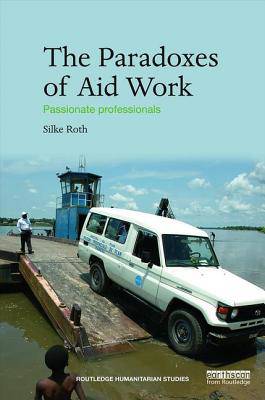
- Afhalen na 1 uur in een winkel met voorraad
- Gratis thuislevering in België vanaf € 30
- Ruim aanbod met 7 miljoen producten
- Afhalen na 1 uur in een winkel met voorraad
- Gratis thuislevering in België vanaf € 30
- Ruim aanbod met 7 miljoen producten
Omschrijving
This book explores what attracts people to aidwork and to what extent the promises of aidwork are fulfilled. 'Aidland' is a highly complex and heterogeneous context which includes many different occupations, forms of employment and organizations. Analysing the processes that lead to the involvement in development cooperation, emergency relief and human rights work and tracing the pathways into and through Aidland, the book addresses working and living conditions in Aidland, gender relations and inequality among aid personnel and what impact aidwork has on the life-courses of aidworkers.
In order to capture the trajectories that lead to Aidland a biographical perspective is employed which reveals that boundary crossing between development cooperation, emergency relief and human rights is not unusual and that considering these fields as separate spheres might overlook important connections. Rich reflexive data is used to theorize about the often contradictory experiences of people working in aid whose careers are shaped by geo-politics, changing priorities of donors and a changing composition of the aid sector.
Exploring the life worlds of people working in aid, this book contributes to the emerging sociology and anthropology of aidwork and will be of interest to professionals and researchers in humanitarian and development studies, sociology, anthropology, political science and international relations, international social work and social psychology.
Specificaties
Betrokkenen
- Auteur(s):
- Uitgeverij:
Inhoud
- Aantal bladzijden:
- 212
- Taal:
- Engels
- Reeks:
Eigenschappen
- Productcode (EAN):
- 9781138200005
- Verschijningsdatum:
- 9/06/2016
- Uitvoering:
- Paperback
- Formaat:
- Trade paperback (VS)
- Afmetingen:
- 156 mm x 234 mm
- Gewicht:
- 317 g

Alleen bij Standaard Boekhandel
Beoordelingen
We publiceren alleen reviews die voldoen aan de voorwaarden voor reviews. Bekijk onze voorwaarden voor reviews.











